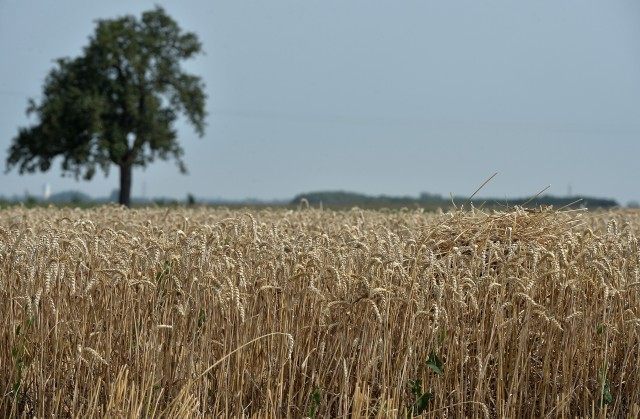Genetically modified crops will be officially banned in Scotland under new plans by the Scottish Government. The policy is the latest ‘green’ initiative by the Scottish National Party (SNP), which has already committed the country to generating 100 per cent of its energy from renewable sources by 2020.
Earlier this year the EU relaxed its strict regulations on the growing of genetically modified crops in a bid to make cultivation of the crops more commercially viable. But the changes to the law allowed for jurisdictions to opt out of the relaxation, keeping in place tight rules and regulations on what may be grown, The Guardian has reported.
Scotland has chosen to use that opt-out, further driving a wedge between the Scottish Parliament and Westminster, and cementing its reputation for anti-economic environmentalism.
Scotland’s Rural Affairs Secretary, Richard Lochhead has justified the ban by invoked the precautionary principle – the notion that we can’t know whether or the advantages of the technology will eventually outweigh the disadvantages, so better to assume that they won’t.
“Scotland is known around the world for our beautiful natural environment – and banning growing genetically modified crops will protect and further enhance our clean, green status,” he said in a statement.
“There is no evidence of significant demand for GM products by Scottish consumers and I am concerned that allowing GM crops to be grown in Scotland would damage our clean and green brand, thereby gambling with the future of our £14 billion food and drink sector.
“That is why I strongly support the continued application of the precautionary principle in relation to GM crops and intend to take full advantage of the flexibility allowed under these new EU rules to ban GM crops from being grown in Scotland.
“The Scottish Government has long-standing concerns about GM crops – concerns that are shared by other European countries and consumers, and which should not be dismissed lightly.
“I firmly believe that GM policy in Scotland should be guided by what’s best for our economy and our own agricultural sector rather than the priorities of others.”
Much like their renewable energy drive, which saw Scotland dubbed a “renewable energy powerhouse,” the announcement was welcomed by green campaigners. Richard Dixon, director of Friends of the Earth Scotland, said: “The Scottish government has been making anti-GM noises for some time, but the new Tory government has been trying to take us in the direction of GM being used in the UK, so it is very good news that Scottish ministers are taking that stance.
“If you are a whisky producer or breeding high-quality beef, you ought to be worried if you don’t want GM but it is going to come to a field near you and you were worried that there was going to be some contamination. It is certainly in Scotland’s interests to keep GM out of Scotland.”
But not everyone is convinced. Contrary to assurances by Mr Lochhead that he would “welcome views from all sides of the GM debate,” NFU Scotland, which represents farmers’ interests, said that no debate had taken place resulting in a hasty and badly thought out ban.
“Other countries are embracing biotechnology where appropriate and we should be open to doing the same here in Scotland,” said Scott Walker, chief executive of NFU Scotland.
“Decisions should be taken on the individual merits of each variety, based on science and determined by whether the variety will deliver overall benefit. These crops could have a role in shaping sustainable agriculture at some point and at the same time protecting the environment which we all cherish in Scotland.”
The Scottish Conservatives have also slammed a ban which they see as uneconomic and unscientific.
“I think this decision puts superstition before science,’’ said Murdo Fraser, a Conservative Member of the Scottish Parliament. “There’s a very strong scientific consensus that GM foods could be hugely beneficial, increasing the volume of food for the world’s population.
“There are two specific issues here for Scotland: if the rest of the UK moves to encourage GM foods and Scotland doesn’t, our farmers will be at a competitive disadvantage, and secondly, a lot of our research institutes which are keen to pursue this technology will lose talent.”

COMMENTS
Please let us know if you're having issues with commenting.